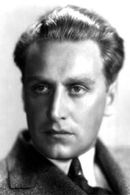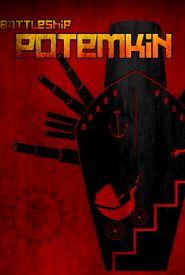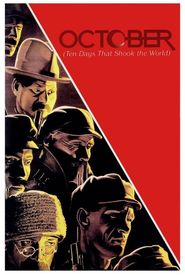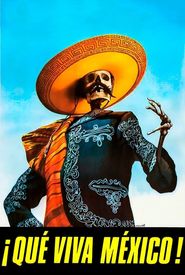Grigori Aleksandrov, a renowned Soviet-Russian filmmaker, was born Grigori Vasilyevich Mormonenko on January 23, 1903, in Ekaterinburg, Russia. His father, Vasili Mormonenko, was a worker, and young Aleksandrov was fascinated with acting and movies from an early age. At nine, he was hired as a delivery boy at the Ekaterinburg Opera, where he eventually worked as an assistant dresser, electrician, decorator, and assistant director.
Aleksandrov studied violin and piano at the Ekaterinburg School of Music, graduating in 1917. During the Russian Civil War, he was a road manager with the Theatre of Eastern Front of the Red Army. After the war, he graduated from the Directors Courses for Proletariat Theatre in Ekaterinburg and was appointed Inspector of Arts at the Ekaterinburg Regional Administration.
In 1921, Aleksandrov met Sergei Eisenstein, and they collaborated on several stage productions and film scenarios. They worked together on 'Stachka' (1924) and 'Bronenosets Potemkin' (1925),and wrote and directed 'Oktyabr' (1927),a historical film about the Russian Revolution.
Aleksandrov and Eisenstein were sent to Hollywood in 1929-1933 to study and work. Upon their return, Aleksandrov made a short documentary film, 'International' (1932). In 1933, he met with Joseph Stalin and Maxim Gorky, and Stalin offered him the opportunity to make a musical comedy for the Soviet people. 'Veselye Rebyata' (1934),starring Leonid Utyosov and Lyubov Orlova, became a huge success and was awarded at the Venice Film Festival.
Aleksandrov directed and edited the documentary of Stalin's speech about the Soviet constitution, 'Doklad tov. Stalina o proekte Konstitutsii SSSR na VIII Chresvychaynom S'ezde Sovetov' (1937). He then returned to making comedies, often starring his wife, Lyubov Orlova, in his films. His 1930s comedies remained popular for several generations.
However, Aleksandrov's success came at a price, as he faced numerous attacks from envious filmmakers and was falsely accused of spying for Nazi Germany. He was cleared of all charges but suffered from the experience. During the 1950s, he taught directing at the State Institute of Cinematography, and his last films had little success.
Aleksandrov received numerous awards, including the Stalin's Prize twice, the Order of Lenin twice, the Order of the Red Star, and the Order of the Red Banner twice. He was designated People's Actor of the USSR and died of kidney infection on December 16, 1983, at the Kremlin Hospital in Moscow. He was laid to rest next to his wife, Lyubov Orlova, in Novodevichy Cemetery, Moscow, Russia.





























